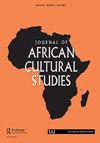The Dream Factory: Chinese Presence on a Nigerian University Campus
IF 0.7
2区 社会学
Q2 CULTURAL STUDIES
引用次数: 0
Abstract
ABSTRACT The Chinese presence in Africa is usually analysed through a soft power framework that benefits China at the expense of host countries. But this article argues that the Chinese presence at the University of Lagos, one of Nigeria’s premier universities, benefits both Nigerians and Chinese. For the former, signs of this presence generate dreams of migration and economic freedom; for the latter, they inspire dreams of cultural and economic influence. However, this interaction has not had a significant impact on Nigerian attitudes towards China, which are complex and variegated. The data was gathered through interviews with students and instructors at the University of Lagos’s Confucius Institute and the direct observations of the researcher over a six-month period between 2021 and 2022.梦工厂:尼日利亚大学校园中的中国存在
ABSTRACT 中国在非洲的存在通常是通过软实力框架进行分析的。但本文认为,中国在尼日利亚一流大学拉各斯大学的存在既有利于尼日利亚人,也有利于中国人。对前者而言,中国人的存在带来了移民和经济自由的梦想;对后者而言,中国人的存在激发了文化和经济影响力的梦想。然而,这种互动并没有对尼日利亚人对中国的态度产生重大影响,尼日利亚人对中国的态度是复杂多样的。数据是通过对拉各斯大学孔子学院的学生和教师进行访谈,以及研究人员在 2021 年至 2022 年间为期六个月的直接观察收集的。
本文章由计算机程序翻译,如有差异,请以英文原文为准。
求助全文
约1分钟内获得全文
求助全文
来源期刊

Journal of African Cultural Studies
Multiple-
CiteScore
1.70
自引率
10.00%
发文量
13
期刊介绍:
The Journal of African Cultural Studies publishes leading scholarship on African culture from inside and outside Africa, with a special commitment to Africa-based authors and to African languages. Our editorial policy encourages an interdisciplinary approach, involving humanities, including environmental humanities. The journal focuses on dimensions of African culture, performance arts, visual arts, music, cinema, the role of the media, the relationship between culture and power, as well as issues within such fields as popular culture in Africa, sociolinguistic topics of cultural interest, and culture and gender. We welcome in particular articles that show evidence of understanding life on the ground, and that demonstrate local knowledge and linguistic competence. We do not publish articles that offer mostly textual analyses of cultural products like novels and films, nor articles that are mostly historical or those based primarily on secondary (such as digital and library) sources. The journal has evolved from the journal African Languages and Cultures, founded in 1988 in the Department of the Languages and Cultures of Africa at the School of Oriental and African Studies, London. From 2019, it is published in association with the International African Institute, London. Journal of African Cultural Studies publishes original research articles. The journal also publishes an occasional Contemporary Conversations section, in which authors respond to current issues. The section has included reviews, interviews and invited response or position papers. We welcome proposals for future Contemporary Conversations themes.
 求助内容:
求助内容: 应助结果提醒方式:
应助结果提醒方式:


